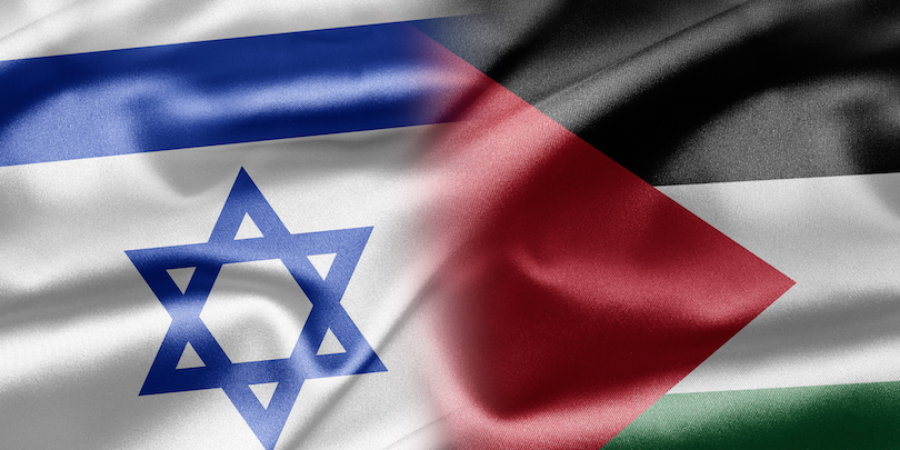

Summary:
In the ongoing Israeli-Palestinian conflict, narratives that inaccurately represent Palestinian lives, motives, and political aspirations are regularly circulated. These narratives serve various purposes, including legitimizing military actions and justifying the status quo of occupation. Here are ten widespread myths and misrepresentations about Palestine and the Palestinian people, alongside some of the most relevant sources that refute these claims.
1. "Palestinians Left Their Land Voluntarily in 1948"
The claim that Palestinians willingly abandoned their homes in 1948 during Israel's establishment is one of the most widely perpetuated myths. While some left under threat, most were forcibly removed, as documented by historians who reference state archives showing expulsion orders. Research by Israeli historian Ilan Pappé describes a planned operation to remove Palestinians, challenging the "voluntary exit" narrative.
Sources: Middle East Monitor; The Guardian; "The Ethnic Cleansing of Palestine" by Ilan Pappé
2. "Israel Seeks Peace, but Palestinians Reject It"
A common assertion is that Israel is open to peace, but Palestinians refuse to engage. Historically, however, peace negotiations have often included terms that severely limit Palestinian autonomy, leaving Palestinians with fragmented territories. Critics argue that these terms undermine genuine self-governance, which Palestinians find unacceptable for long-term peace.
Sources: Middle East Eye; Al Jazeera; "Oslo Accords and Aftermath"
3. "Gaza Blockade is for Security"
The Israeli blockade of Gaza is often justified as a necessary security measure to prevent weapons smuggling. Yet, humanitarian organizations report that the blockade restricts food, medicine, and essential supplies, causing significant hardship for civilians. Analysts argue that the blockade is a means of collective punishment rather than a focused security measure.
Sources: United Nations; Amnesty International; Human Rights Watch
4. "Palestinians Use Human Shields"
Israel often claims that Hamas and other Palestinian groups use civilians as "human shields" in Gaza. However, investigations by human rights groups show that the dense population and restricted movement due to the blockade complicate evacuations during airstrikes. They suggest that rather than deliberate use as shields, civilian casualties result from indiscriminate bombing in densely populated areas.
Sources: Human Rights Watch; Amnesty International
5. "All Palestinians Support Violence Against Israel"
This myth paints Palestinians as inherently violent, overlooking diverse political views among Palestinians. Many Palestinians advocate for peaceful resistance and support negotiations. Surveys show a range of opinions within Palestinian society, indicating that violent actions are not universally endorsed but often stem from frustration over the lack of progress toward a peaceful resolution.
Sources: Pew Research Center; Middle East Monitor
6. "Palestinian Leadership Only Seeks to Destroy Israel"
While some Palestinian factions have historically called for Israel’s dissolution, this view is not universally held among Palestinian leadership. The Palestinian Authority and other groups have repeatedly recognized Israel's right to exist in various peace proposals, advocating instead for a two-state solution. The Palestinian Liberation Organization’s stance reflects this shift since the 1980s.
Sources: BBC; The Atlantic
7. "There Was No Palestinian Identity Before Israel"
Some argue that a Palestinian national identity is a recent invention, implying a lack of historical ties to the land. However, historical records show that Palestinians have maintained a distinct cultural identity and connection to the region for centuries, dating back to Ottoman rule. Palestinian identity is not new but rather rooted in a shared heritage, language, and history.
Sources: Haaretz; Middle East Eye
8. "Israel's Actions are Justified as Self-Defense"
The idea that Israeli military actions are solely defensive overlooks the power imbalance and control over Palestinian territories. Many incidents, such as settler violence against Palestinians or airstrikes in Gaza, go beyond defense, raising international concern about proportionality and human rights violations. Critics argue that these actions are part of a larger strategy of territorial control rather than pure defense.
Sources: United Nations Human Rights Council; Middle East Eye
9. "Palestinian Education Promotes Hatred of Jews"
It’s often claimed that Palestinian schools teach children to hate Jews, thus perpetuating the conflict. Research by organizations like UNICEF reveals that while there are issues in Palestinian and Israeli curriculums, both sides have faced international calls to improve educational content. In Palestine, the focus is often on resistance to occupation rather than hatred, according to various studies.
Sources: UNICEF; Middle East Monitor
10. "Jerusalem Belongs Solely to Israel"
Israel claims Jerusalem as its undivided capital, but Palestinians also have historical and religious ties to East Jerusalem, which they envision as the capital of a future Palestinian state. The city holds significant spiritual value for Muslims, Christians, and Jews, and international law does not recognize Israel’s claim to East Jerusalem, viewing it as occupied territory.
Sources: United Nations; Human Rights Watch; "Sacred Esplanade and Jerusalem’s Status" Debate
Conclusion
These myths contribute to a polarized narrative that dismisses Palestinian grievances and complicates the pursuit of peace. Addressing these misunderstandings is crucial for fostering a fair and balanced dialogue regarding the Israeli-Palestinian conflict. For more detailed insights and specific cases, the listed sources provide in-depth analysis and historical context for each of these issues.
